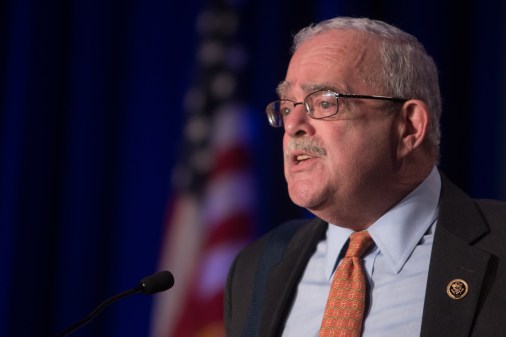Scott announces final FITARA guidance, sets goals for success
U.S. Chief Information Officer Tony Scott announced the release of the Office of Management and Budget’s final Federal Information Technology Acquisition Reform Act guidance Tuesday during a hearing on ensuring success of the law.
“Our guidance takes major steps in ensuring CIOs have a seat at the table for technology-related budget, procurement and workforce matters,” Scott testified before the House Oversight and Government Reform Committee’s Subcommittee on Information Technology.
The final guidance, much like its draft released in April, is centered on a “common baseline” that outlines the roles and responsibilities for agency chief information officers and other senior agency officials.
“More importantly, it establishes a groundwork for productive partnerships among these leaders to make IT decisions that better support [the] mission,” Scott said. Likewise, “it positions CIOs so that they can be held accountable for how effectively they manage the full lifecycle of IT products and services.”
David Powner, director of IT management issues for the GAO, pointed to FITARA’s first provision — the enhancement of the CIO’s authority in IT budget-related decisions — as the most important aspect of the law. While he commended OMB’s work on the common baseline, he said some agencies will struggle to adapt to this change. He added it may push bad CIOs out.
“First of all, you need the appropriate processes, but you also need the appropriate people,” Powner said. “Hopefully with FITARA it’s going to attract an ever better breed of CIOs into the government.”
He added, “I think with the common baseline, it’s a step in the right direction, but it’s going to take time. Your congressional oversight when you look at the plans to fill these [CIO] gaps, it’s going to be really important that we implement [the baseline] effectively.”
Virginia Democrat Rep. Gerry Connolly, an author of the new law, agreed that, in addition to good guidance from OMB, congressional oversight is a must. He said inadequate oversight hurt FITARA’s predecessor: the Clinger-Cohen Act.
“The 1996 law held the potential to be truly transformative,” Connolly said. “However in retrospect it is clear that the Clinger-Cohen Act, while establishing a solid statutory framework, unfortunately fell short of achieving its full potential. There’s also concessions that the primary weakness of that act was not the bill itself but actually its inadequate implementation.”
Much of that, he said, had to do with a lack of congressional oversight when both authors departed Congress soon after it passed. “That’s why today’s oversight hearing is so important, to change that pattern of history,” Connolly said, adding that a major reason that IT acquisition was added to the Government Accountability Office’s High-Risk List this year was to make sure the law gets necessary attention. “We have to make sure FITARA implementation is not Clinger-Cohen 2.0,” he said.
“History tells us if you leave it up to the administration — OMB and the agencies — it doesn’t work well,” Powner said.
From Scott’s perspective, though, the law will be a success if it results in faster delivery.
“It’s really speed; it’s efficiency of our spend; it’s projects that are on time and on budget and meeting the mission they were designed for; they’re secure; and that we have a modern infrastructure that those things run on,” he said. “If we did those things, I think we would declare this a success.”
As part of the final guidance, Scott said agencies will need to submit to OMB a self-assessment and FITARA implementation plan, which will be made public to enhance accountability. Those will need to be updated annually starting April 2016. Additionally, Scott’s prepared testimony said OMB will use PortfolioStat to review agencies’ progress and help keep them on track with the law.




